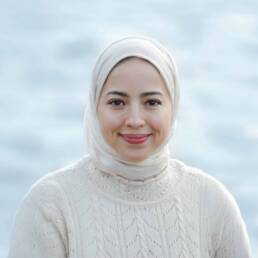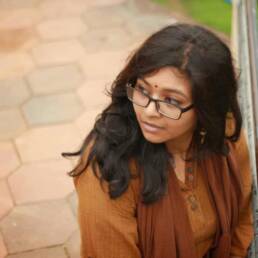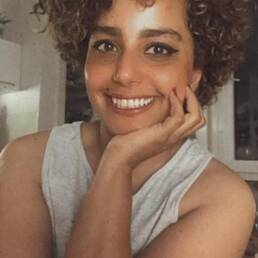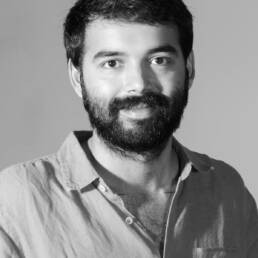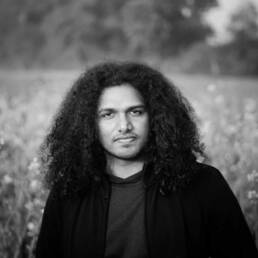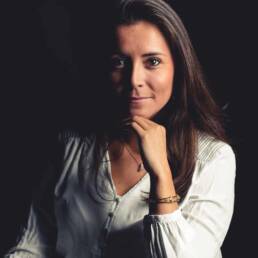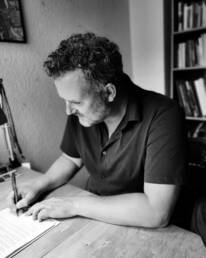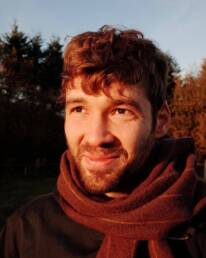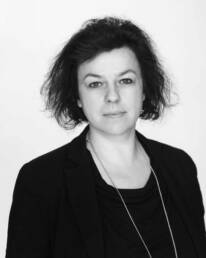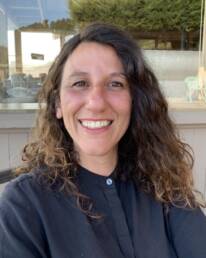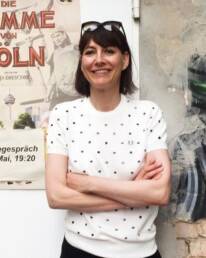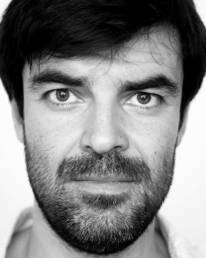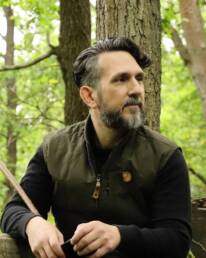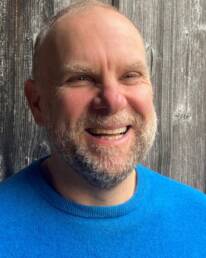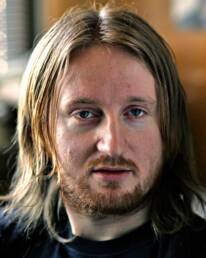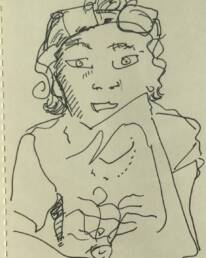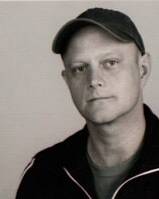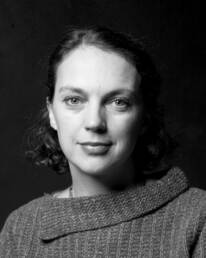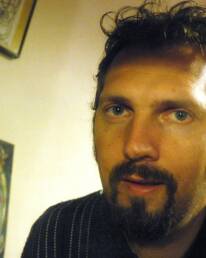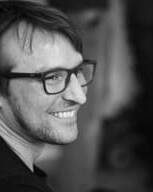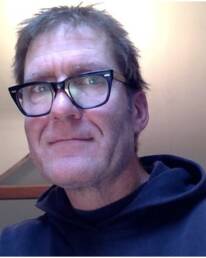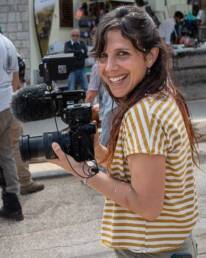Next start of studies: 01 October 2026
Visual Anthropology, Media and Documentary Practices (M.A.)
Learn how media representations shape our world and apply this knowledge to your own research projects and media outputs
Free places
22
Application deadline
31 March 2026
Study fee
€ 13,950
Nada Zraidi, Graduate
The Visual Anthropology program at the Universität Münster combines theory and practice through a synergy of intensive modules and long-duration project work. The faculty is developing new modes and methods of engaging with anthropology while emphasizing filmmaking and other art practices.
Nowrin Munir, Graduate
The Visual Anthropology program at the Universität Münster combines theory and practice through a synergy of intensive modules and long-duration project work. The faculty is developing new modes and methods of engaging with anthropology while emphasizing filmmaking and other art practices.
Fayza Harby-Bemmann, Graduate
The Visual Anthropology program at the Universität Münster combines theory and practice through a synergy of intensive modules and long-duration project work. The faculty is developing new modes and methods of engaging with anthropology while emphasizing filmmaking and other art practices.
Savyasachi Anju Prabir, Graduate
The Visual Anthropology program at the Universität Münster combines theory and practice through a synergy of intensive modules and long-duration project work. The faculty is developing new modes and methods of engaging with anthropology while emphasizing filmmaking and other art practices.
Arjunraj Natarajan, Graduate
The Visual Anthropology program at the Universität Münster combines theory and practice through a synergy of intensive modules and long-duration project work. The faculty is developing new modes and methods of engaging with anthropology while emphasizing filmmaking and other art practices.
Mariana Paquin, Graduated 2019
I am passionate about applying film and art as pedagogical tools to facilitate peace building processes, to challenge discrimination and to question the oppression of human rights. My participation in the Visual Anthropology program at the University of Münster has equipped me with the knowledge and the skills to pursue these interests.
Savyasachi Anju Prabir, Graduated 2021
The Visual Anthropology program at the Universität Münster combines theory and practice through a synergy of intensive modules and long-duration project work. The faculty is developing new modes and methods of engaging with anthropology while emphasizing filmmaking and other art practices.
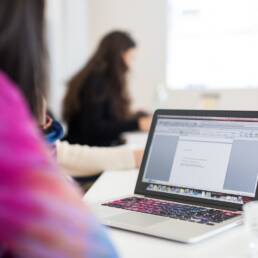
What you will learn
The three-year master program trains students in (1) theory and practice of visual anthropology, (2) the documentary arts (film/photography/installation), as well as (3) media culture and media anthropology. Conceptual and practical knowledge within these areas can be applied in academia, the arts, culture and media industries, as well as to social, applied, or educational media projects. Students study the theoretical and practical foundations of visual anthropology, they gain experience in film production, project development, and (audio-) visual installation.
Presence phases and modules
You complete the master program “Visual Anthropology, Media and Documentary Practices” on an extra-occupational and practice-oriented basis. Upon completion, you may use the title “Master of Arts”. The standard period of study is six semesters, i.e. 3 years. The master program comprises a total of 120 credit points and 50 days that require on-site attendance. The individual modules take place in blocks of 5-10 days.
The extra-occupational master program comprises 9 modules. Modules 1 to 7 are face-to-face courses in small groups, usually with a maximum of 25 participants. In modules 8 and 9, participants complete an internship and write their master’s thesis that is usually accompanied by a practical media project.
In between the seven modules, students participate in five mandatory courses (tutorials) to follow up on the contents taught in the modules. Each tutorial consists of seven sessions á 2 hours. This ensures that students experience continuity and a sustainable study environment between modules.
Introduction to Audio-Visual and Media Anthropology
November 23rd – 30th, 2026
- intersections between documentary art & anthropology
- media and visual culture studies
- from observational to sensory and experimental film
- collaborative & participatory filmmaking
- documentary modes of representation
- auto-ethnography
- transcultural film & anthropology
- qualitative research methods in social anthropology
Prof. Dr. Veronica Barassi
Thomas John
Dr. Judith Albrecht
Dr. Florian Walter
Representation and Narrative Strategies
Februay 23rd – March 1st, 2026
- narrative audio-visual strategies
- poetic framing & visual aesthetics
- exhibition design
- audio-visual installation concepts
- documenting cross-culturally
- artistic research practices
- research through cinema
- ethics of audio-visual representation
Kristian Petersen
Prof. Dr. Emily Smith
Prof. Dr. Christopher Wright
Anthropological Short Film Production
June 4th – 07th, 2026
September 17th – 19th, 2026
- short film production workshop
- film production & editing
- film treatment development
- research through filmmaking
- non-linear storytelling
- web-documentary
- multimodal anthropology
Thomas John
Lefteris Fylaktos
Media Ethnography, Digital Anthropology and Media Practices
September 21st – 27th, 2026
- queer, feminist and decolonial media
- media activism
- politics of media
- indigenous media
- digital audio-visual anthropology
- methods in media ethnography
- media-analytical skills
Dr. Souleymane Diallo
Dr. Anja Dreschke
Dr. Dalia Neis
Mediation of Human Experience and applied audio-visual Anthropology
January 19th – 25th, 2026
- sensory and experimental documentary filmmaking
- applied audio-visual anthropology
- collaborative & participatory approaches
- human-environment relationships explored through audio-visual methods
- human animal-relationships mediated through film
- poetics of cinema & culture
Dr. Thorsten Gieser
Dr. Martin Gruber
Dr. Alexandra D’Onofrio
Professional Project Development & Funding Strategies
May 11th – 22nd, 2026
- project development
- funding strategies
- film proposal development
- finding your creative identity
- transcultural film workshop
- sensory & collaborative strategies in creative cinema
Thomas John
Boris Mitic
Prof. Dr. Laurent Van Lancker
Final Thesis and Project Colloquium
September 29th – October 7th, 2026
- research design development
- audio-visual research methods
- qualitative methods
- film/media project development
- writing a research proposal
- theoretical approaches to film as research
- theoretical perspectives in social anthropology
- research and media/film production ethics
Dr. Thorsten Gieser
Thomas John
Kristian Petersen
Prof. Dr. Thomas Stodulka
Practical Work: Cultural Media Production
- practical work experience
- media project or internship
- skills and networking
- cultural and media industry
- documentary art industry
Fieldwork, Media Project and Final Thesis
- field- and film-work
- film or other media project
- supervision of students’ final works
- research and media production colloquium
- exhibiting a film/media project
Lecturers and scientific leaders
Secure your place at university
Find out more about your Master
Contact us for a personalised consultation
Find out what qualifications are required
Data and facts
Graduation
Master of Arts (M.A.)
Credit points
120 ECTS
Faculty
Faculty of History and Philosophy
Duration of study
36 months
Next entrance date
01 October 2026
Next application deadline
31 March 2026
Teaching language
English
Teaching location
University of Münster Professional School, Königsstraße 47, 48143 Münster
Study fee
13.950 € in up to 3 installments
- as individual payment plan by arrangement
- exempt from VAT pursuant to § 4 No.21 a (bb) UStG
Target group
Filmmakers, multimedia experts, students with a background in the social sciences and humanities and professionals with an interest in the complex connections between media, culture and society
Access requirement
- a relevant undergraduate or first degree (at least 180 ECTS credit points, e.g., Bachelor and Master)
- at least one year of work experience in media production and/or the social sciences or cultural studies subsequent to your first university degree
- English level B2 pursuant to the Common European Framework of Reference for Languages (CEFR)
The proof of English is not required for applicants whose native language is English or who can prove an English-language university degree. Alternatively, the University of Münster Professional School offers an English test (20-minute interview). The fee for this test is €50.
Free places
22
Buddy Program
We offer a buddy program for new and prospective students. The idea behind it is to provide newcomers with first-hand experience of the study program from a student’s perspective. Especially for prospective students from abroad, the buddy program is intended to provide information about life in Germany, guidance about the challenges of moving to another country and ways to overcome them. For this purpose, we connect new students with students who are already enrolled in the program. We hope that this shared perspective will help to answer initial questions and reduce some of the uncertainty that newcomers may feel.
If you would like to participate in the buddy program, either as a buddy or as a newcomer, please contact Pablo Holwitt.
More topics
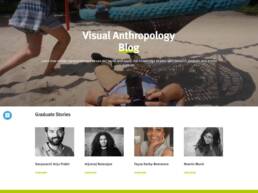
Explore our blog!
We are pleased to announce the launch of a new blog dedicated to our Master Program. The blog features profiles of our graduates, highlighting their work and career paths, as well as updates on the program and related news.
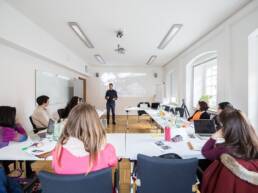
Frequently asked questions
Important questions and answers concerning your studies at the Universität Münster Professional School

Online info session
On 04 March 2026 at 04pm CEST our next online info session will take place. During the info session, we will provide some general information about our study program and answer your questions. The info session will take place via Zoom.
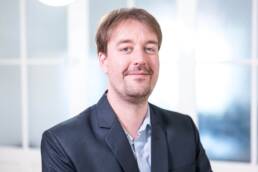
We are happy to help with any questions
Dr. Pablo Holwitt
Student advice and support
Mo–Fr: 09.00 am - 4.00 pm
